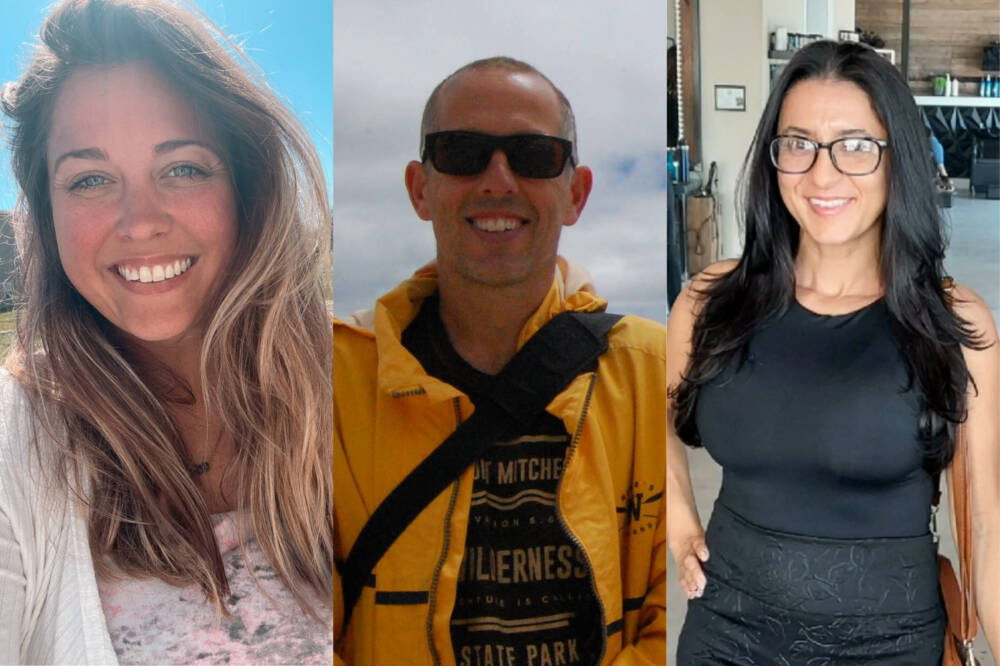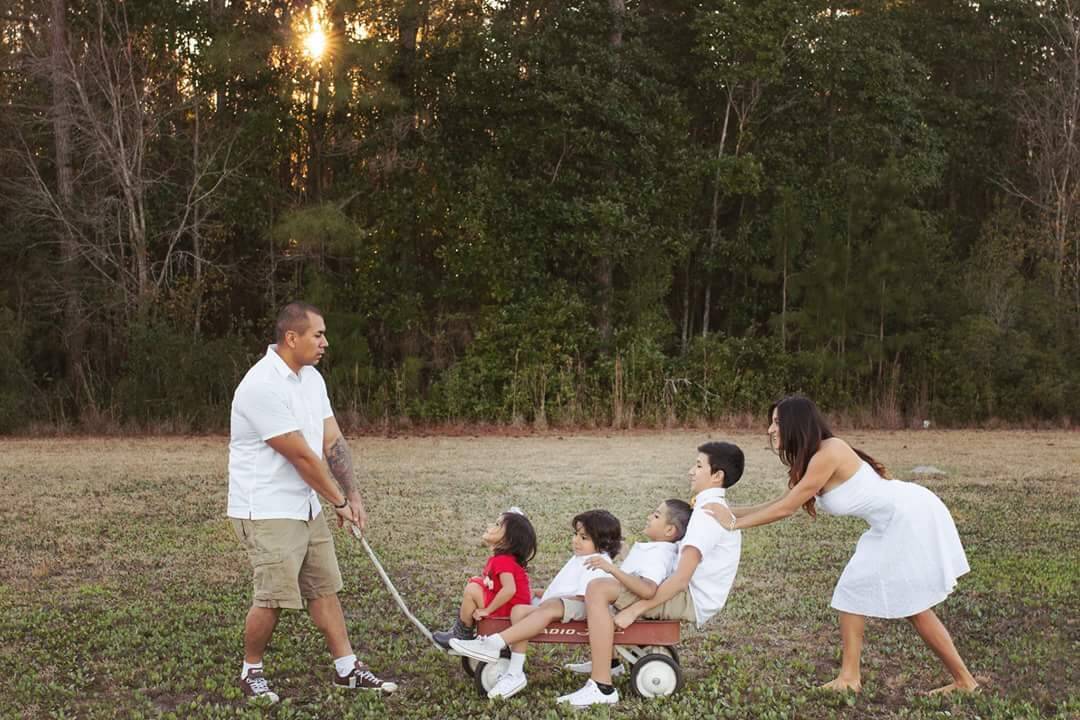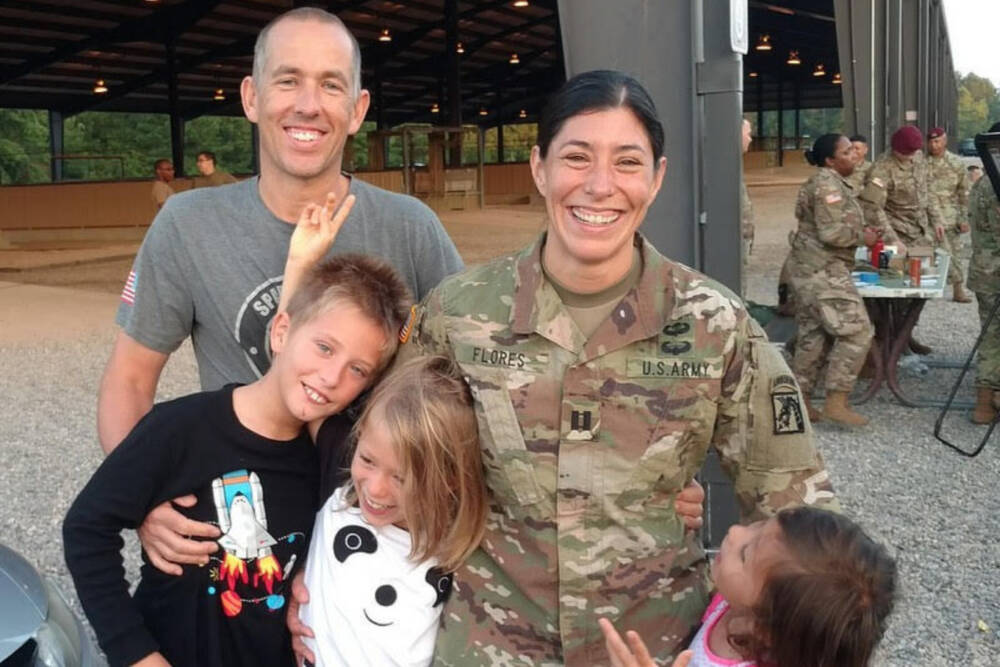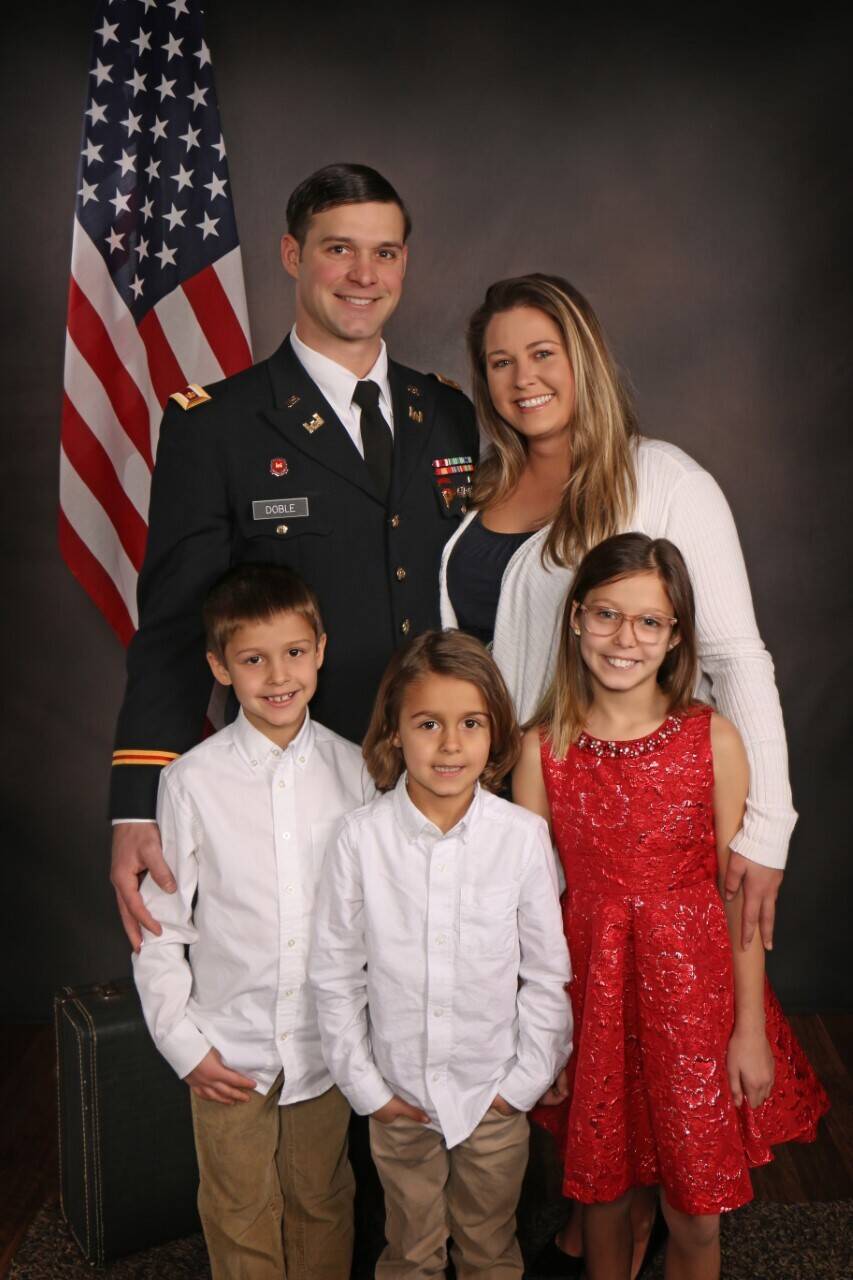Advertisement
Military spouses often feel overwhelmed and alone. A new pilot program aims to help
Resume
Day-to-day instability is pushing many spouses of active-duty military members to a breaking point.
Even women who grew up in military families, as self-described Army and Navy brats, say they did not realize what they were signing up for when they began to juggle the pressures of life as a military partner.
They face obstacle after obstacle — from struggling to secure a job to finding child care — because they constantly uproot their families as military assignments change.
When Elisa Borah’s husband was deployed to Iraq for 15 months in 2006, she juggled caring for her two young children alone while also attending graduate school.
“I did my best to find close relatives and other friends and family to help out during that time,” she says. “I remember the thing I most wanted help with — and this sounds kind of strange — was just someone to watch the kids while I went to the grocery store by myself and could just do some adult tasks that I needed to get done.”
Borah is now the director of the Institute for Military and Veteran Family Wellness, a joint initiative of the Dell Medical School Department of Health Social Work and the Steve Hicks School of Social Work at The University of Texas at Austin. Her latest effort is a new pilot program that aims to connect military families with resources and peer support.
There are currently 700,000 active duty military spouses in the U.S. Borah says she was inspired to come up with a solution to help them because she has seen the benefits of supporting spouses of veterans who didn’t know where to go for help with their concerns.
Borah anticipates that as soon as a spouse in the program is assigned to a new location, they could join a group of peers in the area with a semi-structured curriculum to get connected to resources.
In Texas, Melissa Megoulloa is eager to be a mentor to fellow spouses. Her husband, Sgt. First Class Jose Megoulloa, was a Marine prior to entering the Army.

Sgt. First Class Megoulloa has been in the service about 24 years, including his reserve time, and they have been married 18 years. As a family, they have moved all over the country for his assignments, but they live off-base near Fort Cavazos now.
“At least the soldiers get very specific guidelines. This is where you have to go. This is where you show up. This is who you speak to. This is what you wear,” Megoulloa says. “There are no instructions for [the] family.”
Every time they move, Megoulloa only knows to arrive at an address by a certain date.
“As a spouse, I have to figure out … Where are we going to live? Where are the kids going to go to school? How are we going to say our goodbyes?” she says. “What are we setting up for day care? Are we going to have two cars? What's the mortgage or the rent look like? All of that falls on us.”
Borah says stories like this are common.
“Spouses feel somewhat on their own in terms of making it all work, managing everything, while the service member is really focused on their work — which is extremely important. And spouses completely understand that,” Borah says. “But spouses just feel like they don't have enough guidance or information about how to really succeed in this life.”
Another spouse, Scot Shumski, is based at Fort Lee in Virginia with his wife, Capt. Promotable Julia Flores, and their three children.
She joined the military later in life in 2016. The couple has been married for 19 years. Military life as a spouse has, without a doubt, put a damper on his career, Shumski says.
“Sometimes I think the military, they're trying hard. They're putting efforts out. They understand it's a problem,” he says. “But as someone who lived a civilian life for the first 44 years and then was exposed to military life, I see a lot of the 1950s in the military and not reflective of a two-person working family where both individuals are high-goal, oriented-career individuals.”

Shumski says he's looking forward to being part of a peer support group as a way to network and get job assistance.
Borah says employment challenges have become the number one issue spouses raise. But, there’s recently been a renewed focus on this issue.
“There's a lot of great partnerships with national nonprofit organizations that are supporting spouse employment efforts in terms of everything they need to network, develop interview skills, resume development, etc.” Borah says. “And then there's also legislation underway to support employment abroad, which there have been restrictions in place in the past. In addition, there's focus on child care because that also is a related challenge that without reliable, really effective, safe child care, spouses can't feel comfortable or find the time and space to actually get there to focus on that employment.”

Kayla Doble and her family are based at Fort Leavenworth, Kansas. But they’re getting ready to move overseas for the first time to Korea for her husband Maj. Brandon Doble’s latest assignment as a U.S. Army engineer.
The couple has been married 11 years. Doble is looking forward to connecting with a peer support group to feel less alone and find ways to practice more self care.
“I didn't know how it would feel as a mom to watch my kids cry because they miss their dad. I didn't know what it would feel like to miss my other half so much and not be able to talk to him,” Doble says. “And so to be told by people that don't live this life, well you get this, and you get medical care and you get housing and you get all of these things. I would trade those in in a heartbeat, sometimes.”
Borah says it’s a common concern that people don’t understand military life.
“Their civilian counterparts, their families, their friends, they just don't really understand the experience,” Borah says “What we're trying to create is a sense of community among other spouses where we can freely talk about and express these difficulties and feel understood, feel supported.”
Borah believes military spouses have a lot of support, but ultimately, it’s not always provided in a consistent manner.
“Sometimes it is,” she says, “but I just believe that if we provide that regular, consistent support, that would be ideal.”
Ashley Locke produced and edited this interview for broadcast with Gabe Bullard. Locke also adapted it for the web.
This segment aired on May 11, 2023.

